Red propaganda banners with their yellow or white lettering aren't unusual in Beijing, local government officials have gone into overdrive to mark today's celebrations.
Down the length of central Chang'an Avenue (Literally "Avenue of Eternal Peace") where today's October 1 parade will pass, large displays of flowers have been built in tribute to China's modern achievements, such as 5G technology or the Hong Kong Macau Zhuhai Bridge.
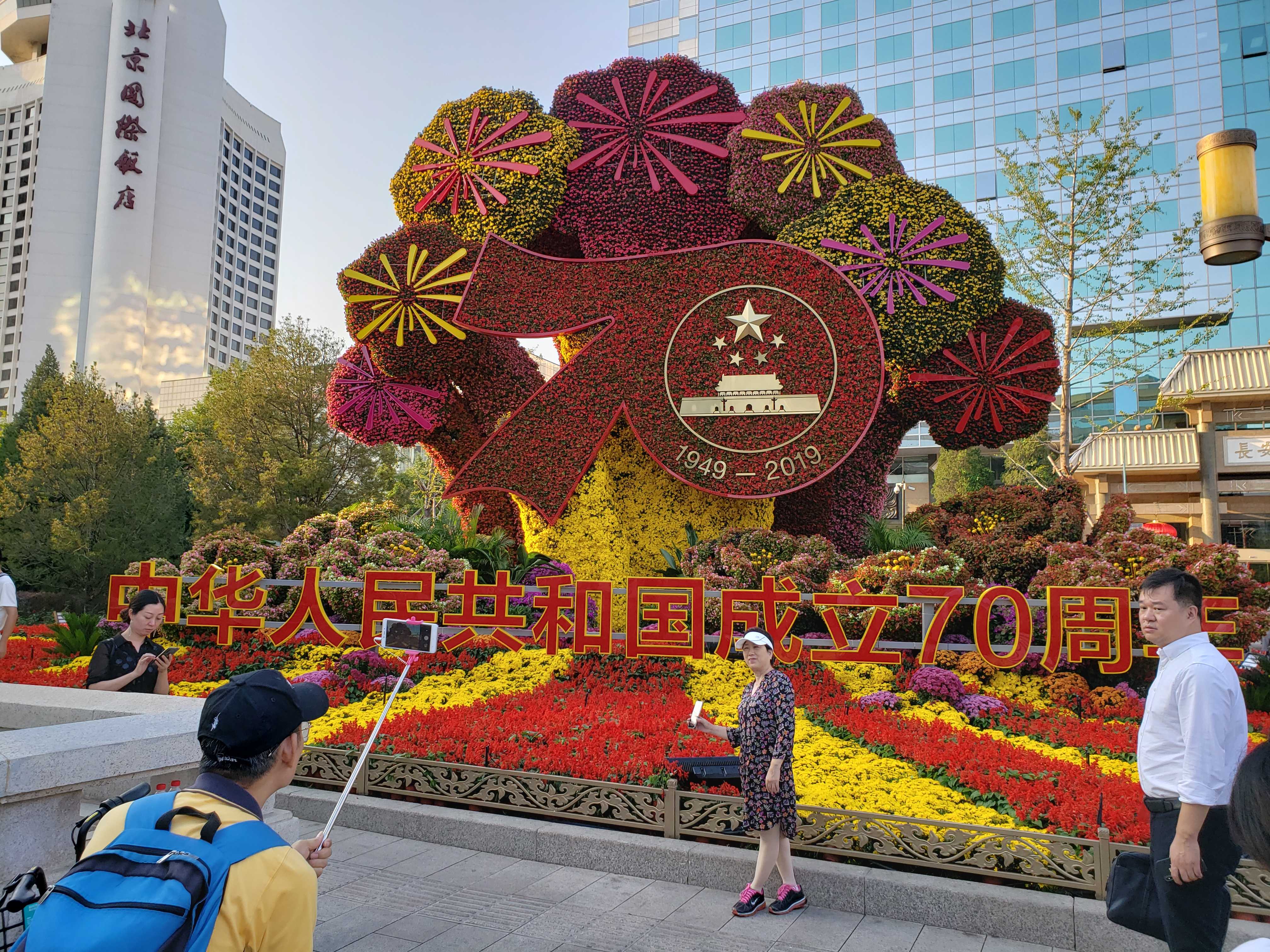
"Unite closely around the party center with Comrade Xi Jinping as the core. Strive for the grand victory of socialism with Chinese characteristics in the new era," one large flower bed just east of Tiananmen Square reads.
In the run up to today's parade, many local Beijingers came out to see the huge displays or take selfies next to them.
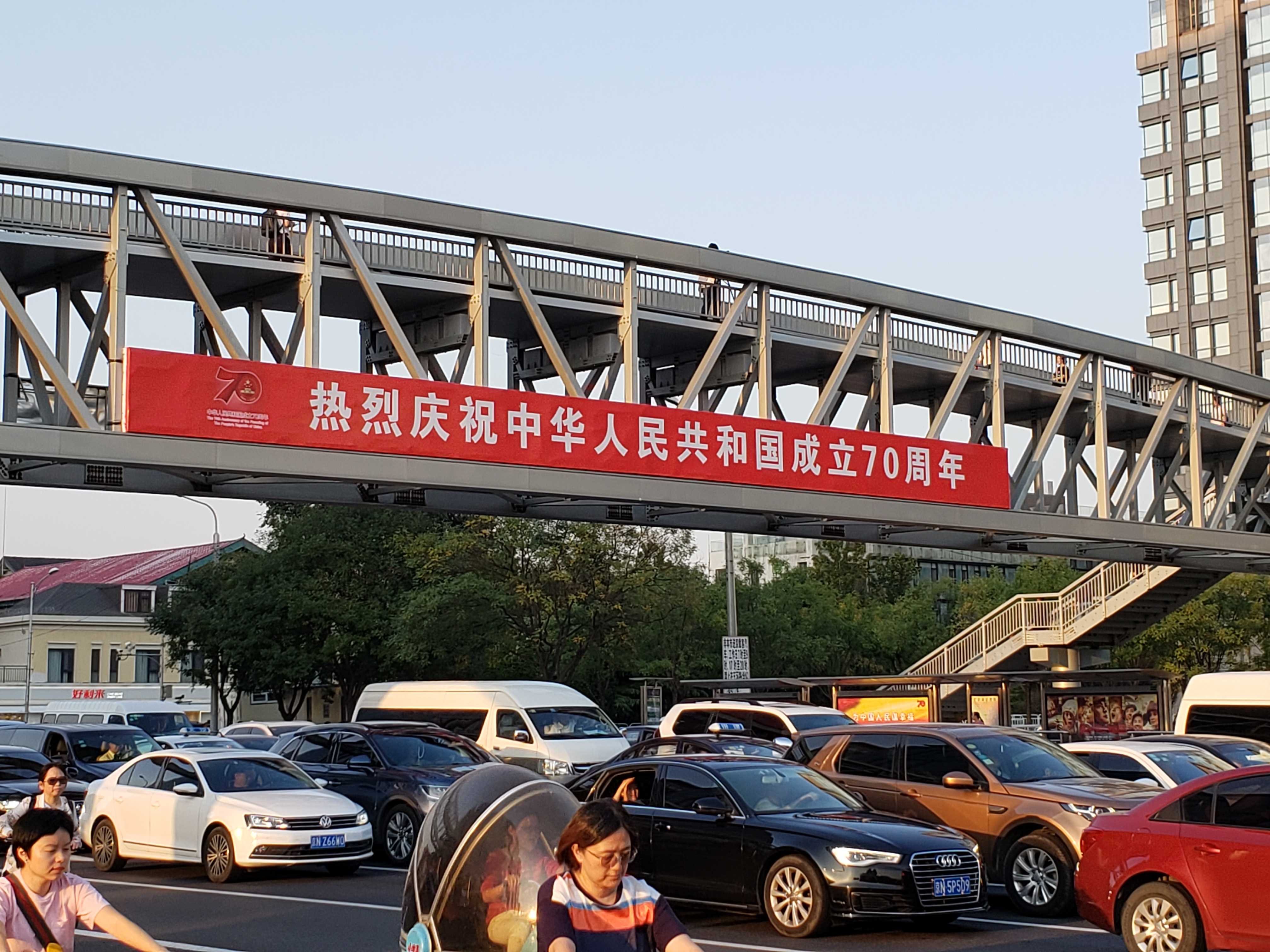
Elsewhere in the city, propaganda banners call on people to come together to celebrate the past seven decades.
"If the people have faith, the country will have strength and China's ethnic groups will have hope," one sign near Tiananmen Square proclaims.
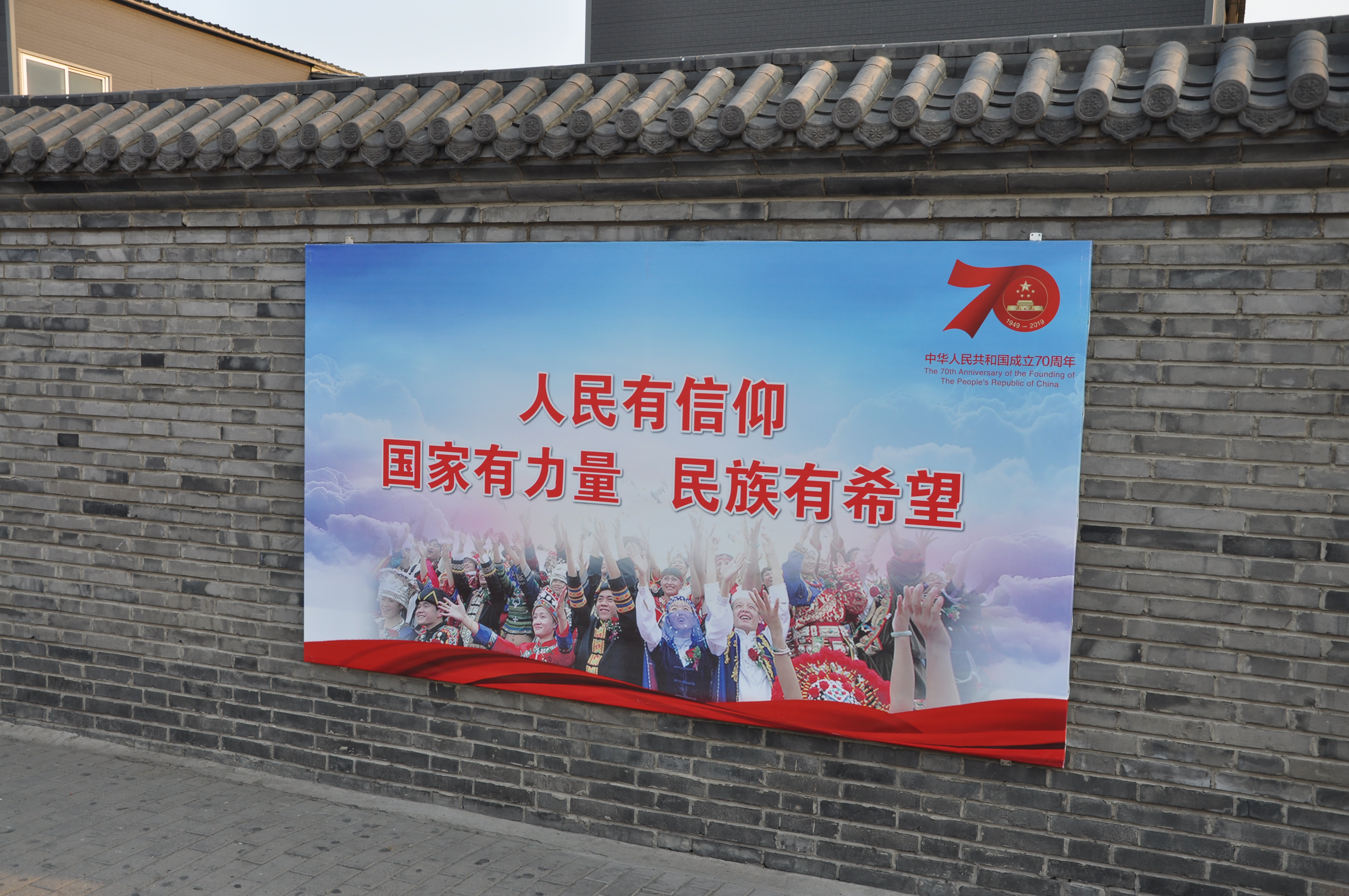
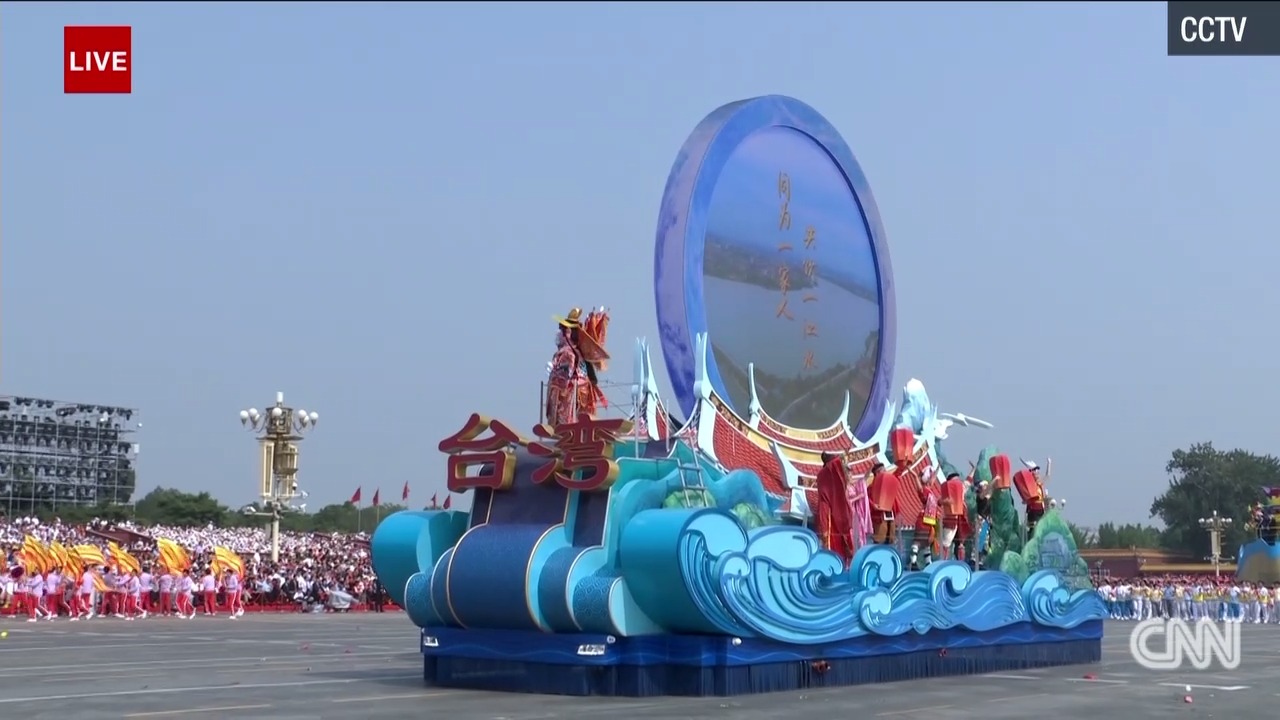
A float for Taiwan has just passed by on Beijing's Chang'an Avenue, where the celebratory parade is taking place.
Taiwan has been self-governed since separating from China at the end of a brutal civil war in 1949, but Beijing has never given up hope of reuniting with what it considers an integral part of the People's Republic of China.
Beijing has placed mounting diplomatic and economic pressure on Taiwan, conducting live-fire drills in nearby seas and flew H-6K bombers and surveillance aircraft around the island.
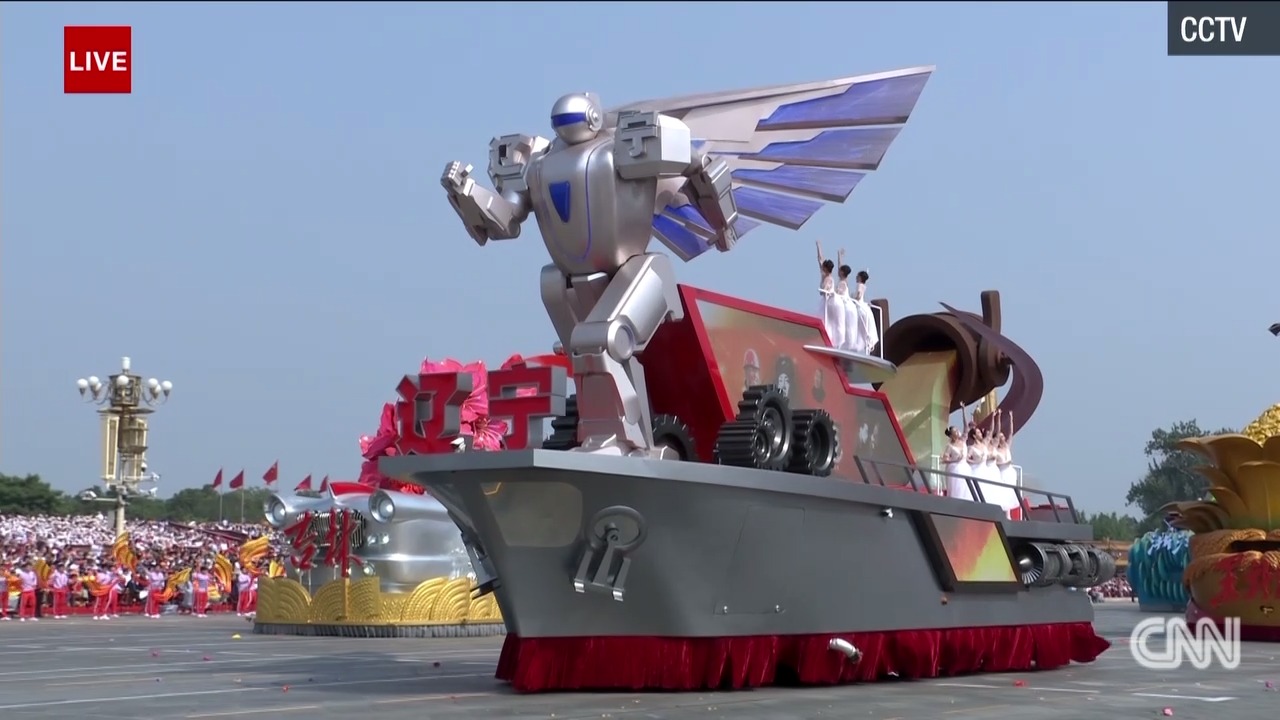
There are now floats passing by Chang'an Avenue representing separate cities and provinces.
Several seem to feature robots. The float for Liaoning province, an industrial base, is fronted by a giant winged robot, striding forward like a ship figurehead.
There are a few other bizarre floats -- one had a treadmill mounted on top, with performers running endlessly.
Another has a miniature train running on a track built into the float, ducking in and out of a tunnel in a fake mountain.
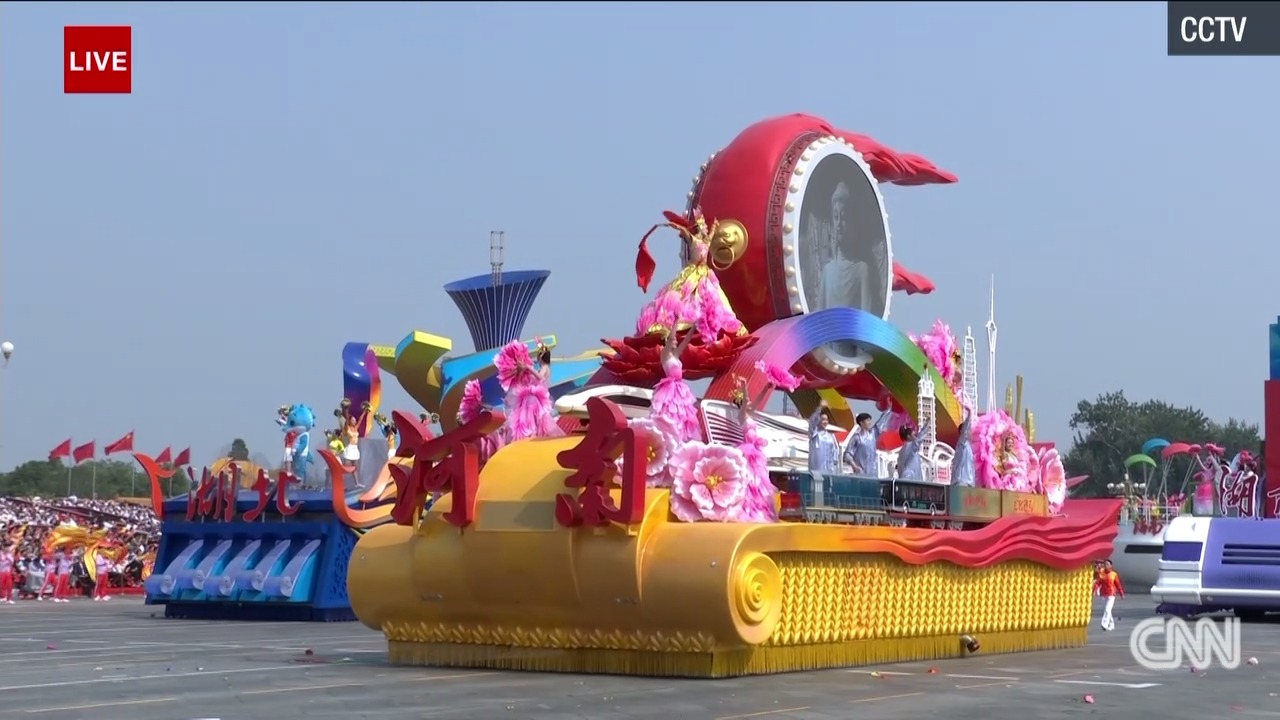
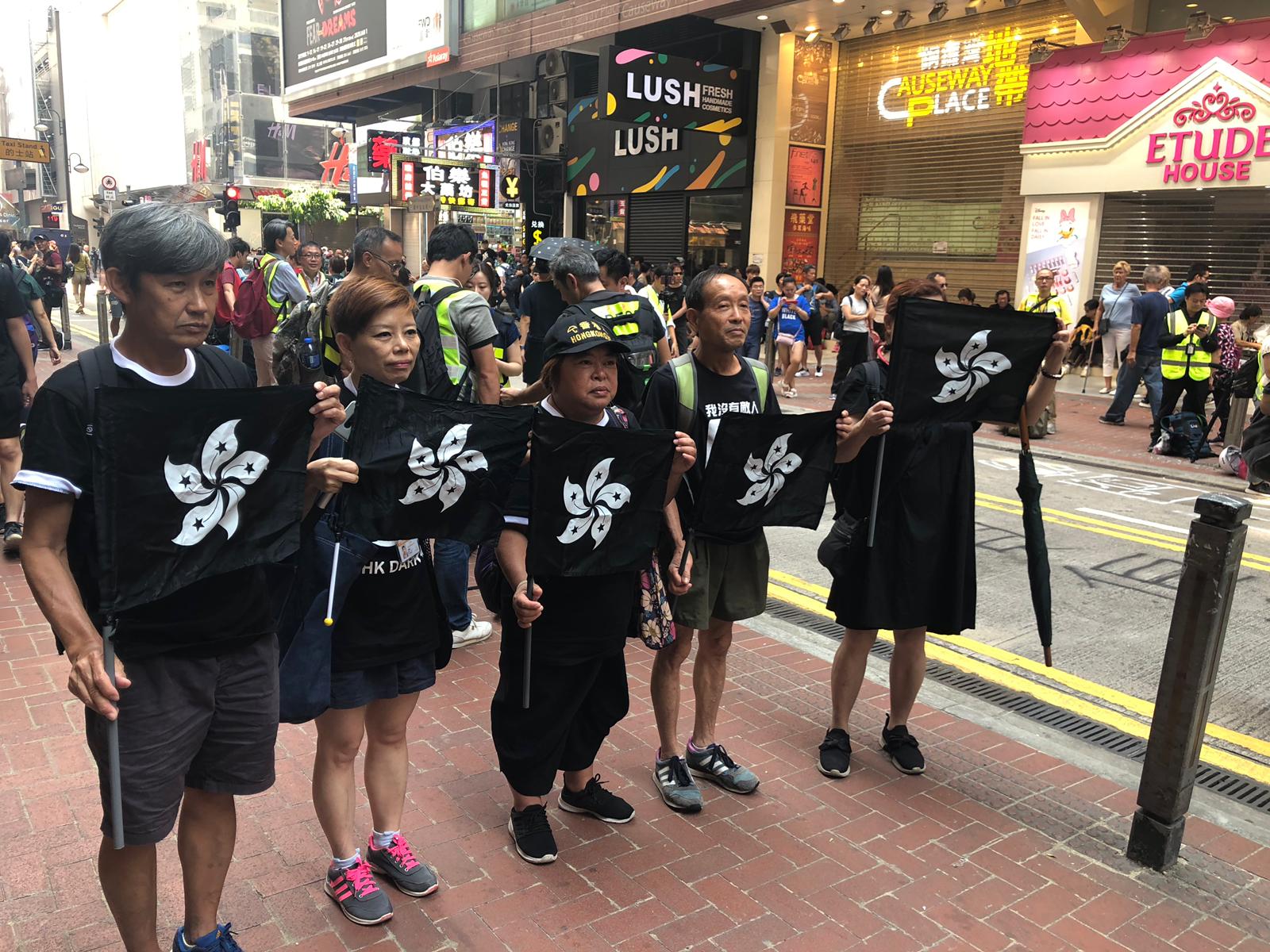
It's National Day in Hong Kong too -- but it's not immediately apparent. The semi-autonomous Chinese city marks the annual celebration with a public holiday, but many people are staying off the streets this year.
Hong Kong police warned citizens Monday to expect "severe disruptions" caused by "unauthorized public events."
Protests are planned throughout the day, with major demonstrations scheduled to begin at 1 p.m., local time.
"You wouldn’t know that there’s a giant celebratory parade going on in Beijing. Whereas people gathered in malls and other public spaces in the Chinese capital to watch, many malls in Hong Kong are actually closed today due to fears of protests," says CNN's Josh Berlinger, who is currently the city's in downtown area.
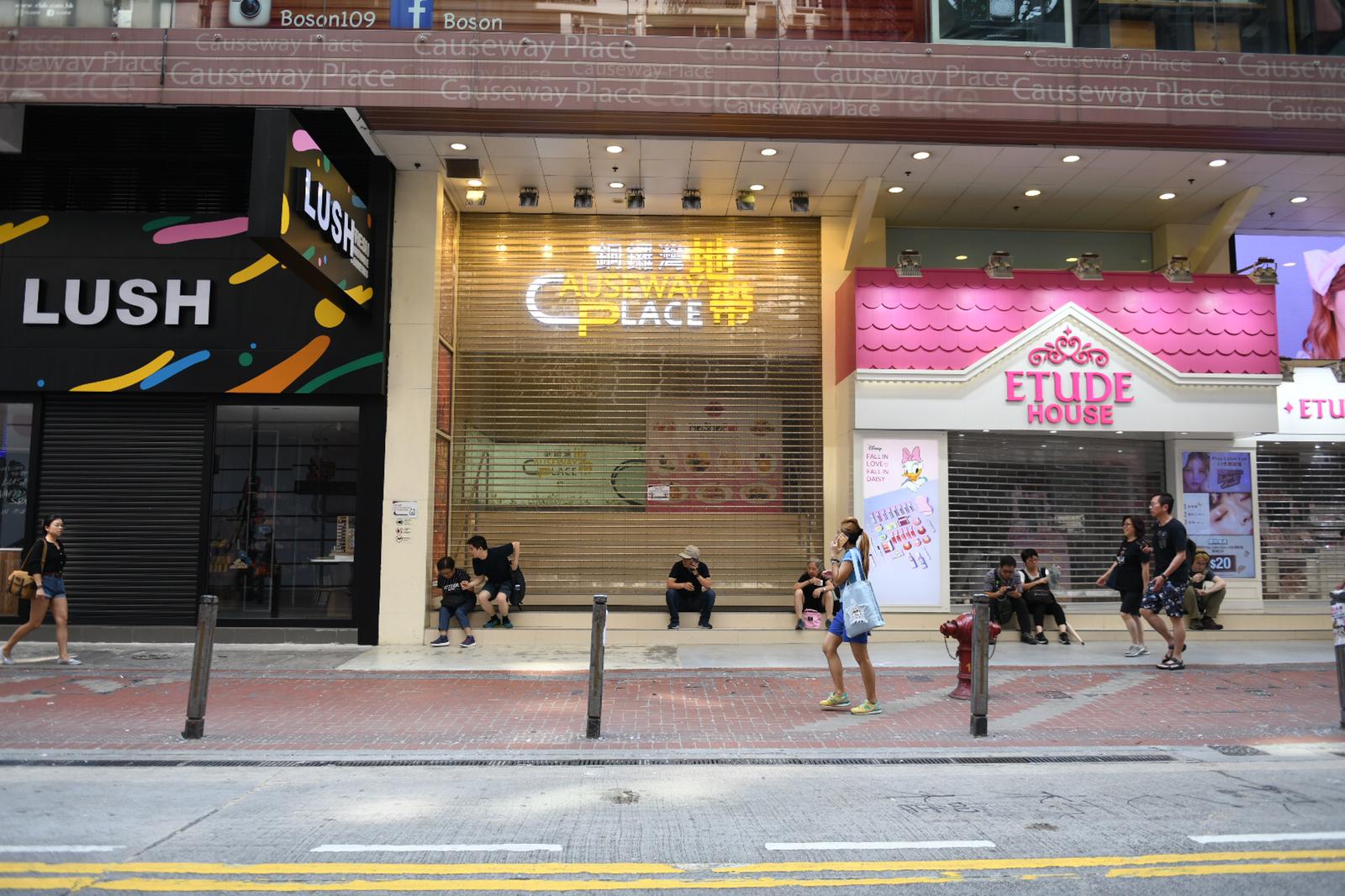
Between the huge propaganda posters and the miles of red flags, thousands of Beijingers are just enjoying a well-earned day off.
On the mostly deserted streets, there are no spontaneous parties or celebrations, no barbecues or spontaneous fireworks displays.
This isn't like July 4 in the United States or Australia Day. The feeling on the streets is more of a holiday, than a mass celebration.
Many people are still at home, watching the October 1 parade on their televisions.
The citizens who are on the streets have the quiet air of people who are enjoying a public holiday. In the parks, they dance or play games. one man is practicing his recorder underneath a pagoda.
77-year-old senior citizen Lu Shaokang who was sitting in the park rather than watching the parade told CNN that his wife wouldn't let him watch television -- so he may as well go outside.
Many people said they are planning to head to the movies later on, to see the new patriotic blockbuster, "Me and My Country."
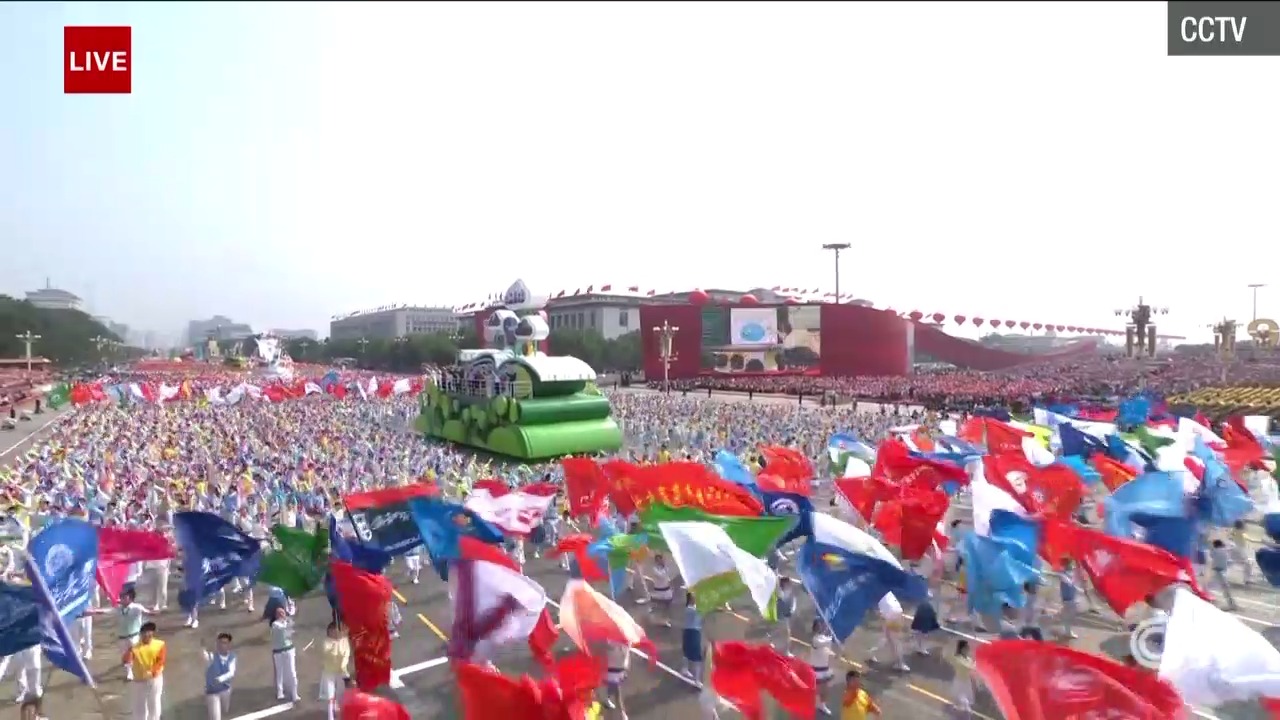
Chang'an Avenue is filled with floats and marchers -- many representing abstract ideas. one float earlier represented China's technological advances, and another represented "democracy and the rule of law."
Another float and marching group represented "Chinese culture" broadly, with performers including traditional opera singers.
Passing now is a float meant to represent "a high moral standard to educate the young people," said state TV.
A sea of students and teachers also marched by, waving their school flags
"Education is paramount to the nation's future," said the state TV broadcaster.
Constitution float celebrates "democracy and the rule of law"
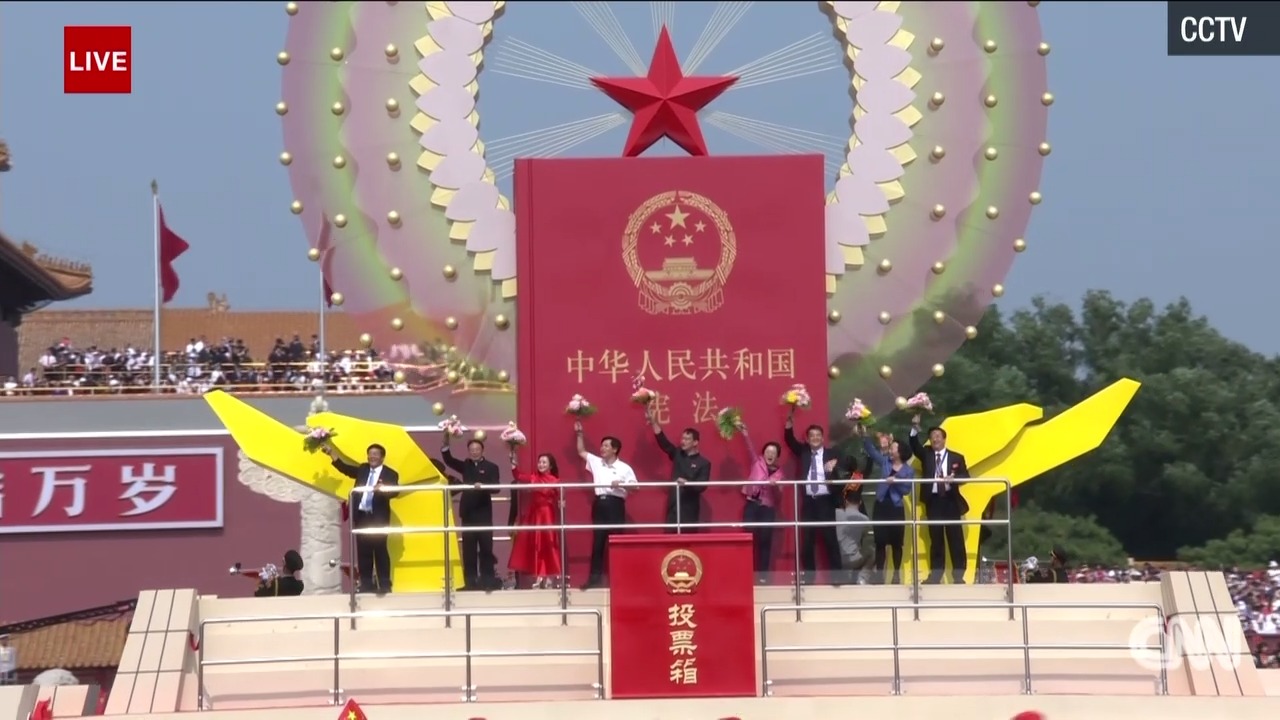
A float with a large mockup of China's constitution is intended to celebrate "democracy and the rule of law," according to state TV.
While the constitution, first declared in 1954, does contain protections for human rights and propound democracy, this ideals are severely lacking in practice.
Dissidents have been imprisoned for calling on China's government to honor its constitutional commitments. In 2008, many propounded Charter 08, a document calling on Beijing -- on the 60th anniversary of the Universal Declaration of Human Rights -- to introduce an independent legal system, freedom of association and eliminate one-party rule.
The following year, one of the charter's co-authors, Liu Xiaobo was sentenced to 11 years' imprisonment for "inciting subversion of state power." Liu, a Nobel Peace Prize laureate, died in 2017 under close guard, after years in prison, his family and wife harassed by secret police and his work stamped out by China's censors.
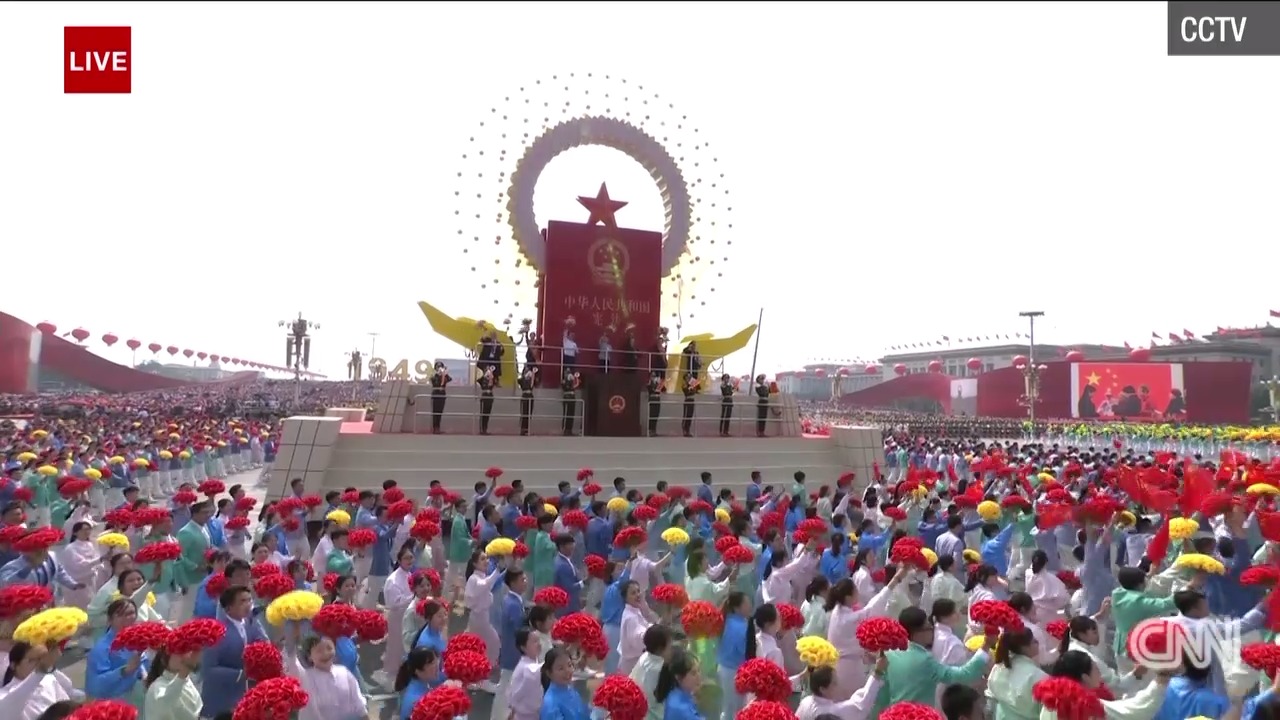
Today's National Day parade is something of a second coronation for Chinese President Xi Jinping, said Yang Jianli, a longtime dissident and founder of the US-based Citizen Power Initiatives for China.
"The parade is important for Xi," Yang said. "He is seeking a mandate for (dropping term limits) and in turn, enthroning himself as king."
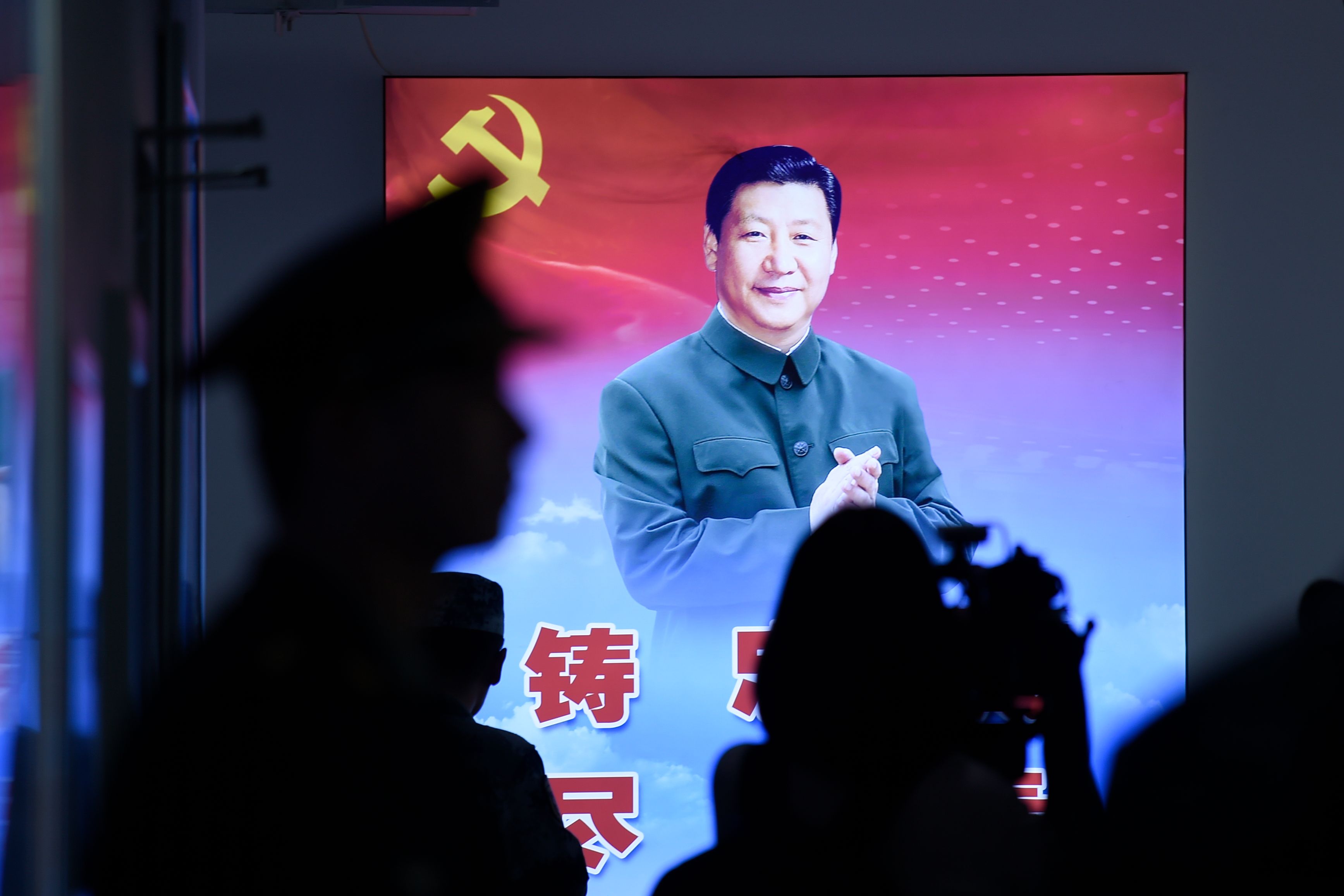
In a piece co-written with human rights activist Aaron Rhodes and shared with CNN ahead of publication, Yang added that "the nationalism on display on October 1 in Beijing is an aggressive assertion of ethnic and cultural superiority driving a mission to dominate and exploit lesser nations of the world, led by a personality cult, and with the military and economic might to succeed. "
"The Tiananmen Massacre ripped the revolutionary facade (from the Communist Party's) Marxist ideology, and forced the Party to rely exclusively on two sources of legitimacy ... high-speed economic development and nationalism," Yang and Rhodes write.
"More than ever, Xi must rely on nationalism to ensure political stability and the legitimacy of the regime."
Xi Jinping's giant portrait is finally shown
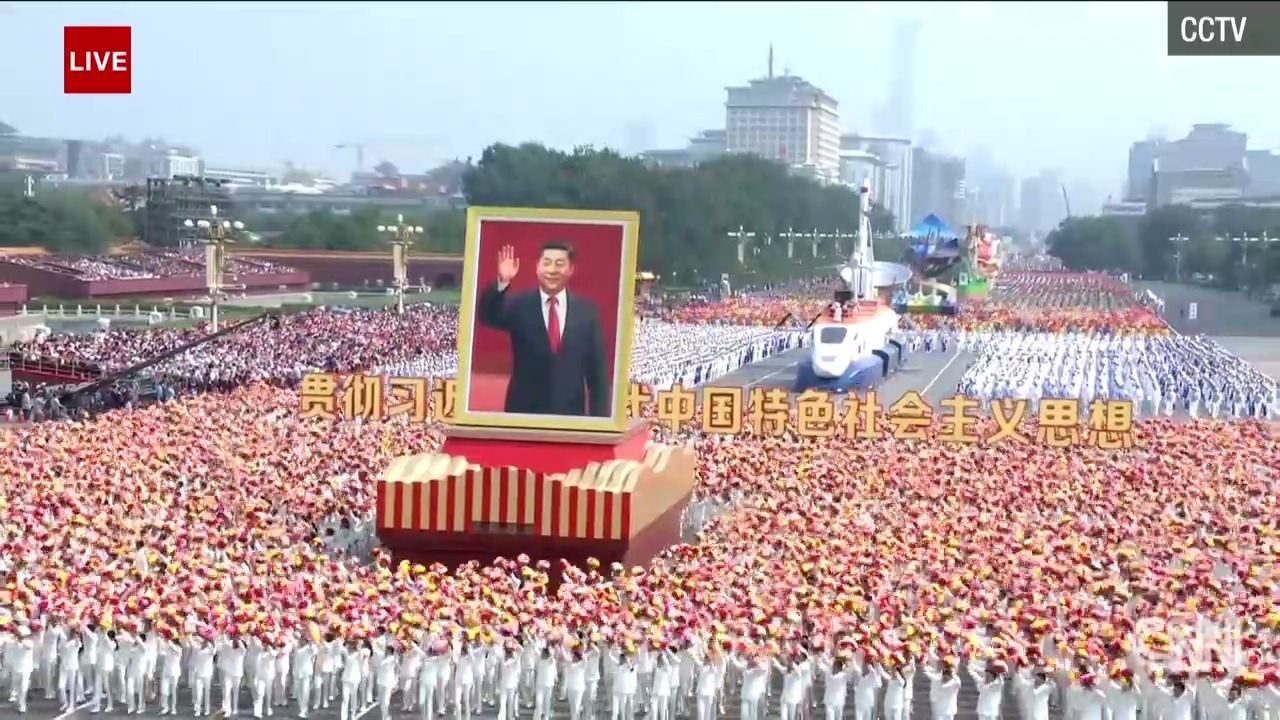
The parade so far has featured the giant portraits of past Chinese leaders like Mao Zedong and Hu Jintao. Now, it's Xi Jinping's turn.
The current president stood watching from above as his portrait was carried through the wide Chang'an Avenue by thousands of red-clad marchers.
